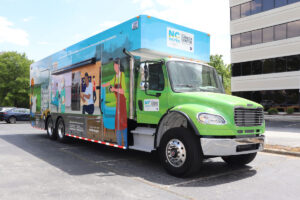Where we are now
For some time now, people have been intently watching the nation’s economy, especially the inflation rate, with some concern and maybe some confusion. Inflation occurs when there aren’t enough goods or services to keep up with demand. According to the US Bureau of Labor Statistics, the Consumer Price Index (CPI) i.e. the measure of the average change in prices paid by urban consumers for goods and services over time, increased by 8.2%. This means that the same $100 of groceries now costs closer to $108.20, maybe even higher in some places.
Feeling the Effects
Higher prices for food, gas, products and services have affected us all. The inflation rate is currently at a 40-year high, and interest rates continue to climb in efforts to combat rising inflation. As a result of the ongoing economic crisis, consumers are now spending less. Less demand means more products on shelves. More supply than demand means eventually, businesses have to make difficult decisions like layoffs to accommodate for the minimal profit.
How we got here
Inflation stemmed from multiple factors, including stalled supply chains and increased product demand. We’re still struggling with the repercussions of an economic shutdown during the height of the pandemic, along with facing soaring fuel prices. We’re all feeling the pressure, especially here in Guilford County.
Labor Participation
Many people were affected by the COVID-19 pandemic, and the Great Resignation that followed, more vulnerable workers were unable or unwilling to stay in public-facing jobs, while others left the workforce to care for family members at home.
Earlier this year, GuilfordWorks conducted the “Great Resignation Survey.” We polled Guilford County job seekers to inquire about their hesitancy to return to the workforce. The results indicated that more flexibility and higher salaries were the most requested accommodations.
Currently, the unemployment rate nationally is 3.5%. North Carolina’s unemployment rate was 3.5% in August 2022, while Guilford County’s unemployment rate rose to 4.6%. During normal economic times, those numbers wouldn’t look too bad. However, some economists argue that the labor force participation rate and unemployment data should be considered together to better understand an economy’s real employment status.
What does that mean for us locally?
During August and into September, GuilfordWorks conducted the “Employer Challenges Survey.” We collected 45 responses covering various industries, including transportation and logistics, healthcare, skilled trades, and advanced manufacturing. Our goal was to determine how inflation and recession concerns have impacted their businesses. We received some interesting results and want to highlight how these issues affect businesses here in Guilford County. Ultimately, this article aims to ensure that employers and job seekers are well-equipped with objective information to navigate these unprecedented times.
How has inflation affected local employers?
Over 70% of businesses expressed that inflation has negatively affected their businesses. Some felt the pinch as gas prices rose, and some employees could no longer afford to drive to work. Many struggled with maintaining consistent profits while retaining current customers. In comparison, some encountered difficulties in keeping employees secure and happy. As you might expect, these issues, along with others — staffing shortages, supply-chain issues, rising costs, and looming economic concerns — significantly impacted employers in recent months.
64% of surveyed employers are currently taking steps to assist employees. Some of these measures include increasing wages, allowing more remote work to save on gas, providing education and training, and issuing cost-of-living adjustments for employees.
How are employers going to deal with a recession?
A recession could mean slower job growth in many industries and pushes companies to consider layoffs or hiring freezes. According to the survey data, only 8% of businesses currently are implementing hiring freezes, and another 10% are currently reducing hours.
Additionally, 32% of employers are readjusting their products and services due to labor shortages, and another 32% are working to upskill and cross-train existing employees.
We asked local employers if they were currently looking for more workers and still have available roles to fill, and approximately 75% said yes. Another 73% said they are still struggling to attract and hire new talent.
Fortunately, only 40% of businesses are experiencing turnover in key positions, meaning employers are making stronger efforts to retain talent. Some feedback employers provided included increased wages, accelerating pay where possible, and allowing remote work to save on gas. Some employers have even provided training for incumbent staff.
There are over 35,000 job openings in Guilford County alone, so those vital roles still exist. If you are of working age, and willing to learn in-demand skills, the time for securing meaningful employment is now.
GuilfordWorks, through our NCWorks Career Center staff and our CAREER CONNECTIONS team, can help you as job seekers gain the skills necessary to jump into an in-demand career that’ll start you on a pathway to long-term success. If you’re an employer, GuilfordWorks offers free or low-cost programs for upskilling incumbent workers, apprenticeship programs, and on-the-job training, along with additional services. Reach out today to find out more.









0 Comments